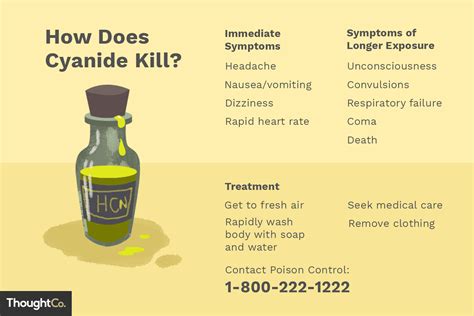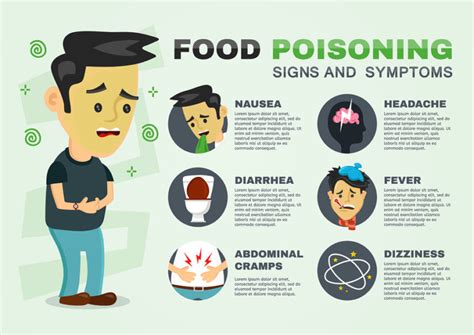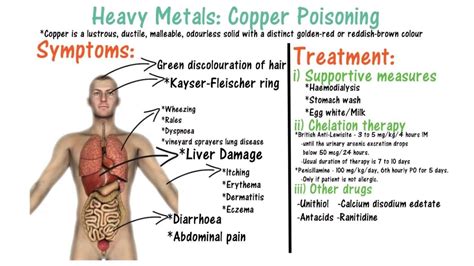
Antifreeze Dog Poisoning Symptoms
Antifreeze Dog Poisoning Symptoms
As a pet owner, it’s crucial to know the symptoms of antifreeze poisoning in dogs. Antifreeze is a common household item used as a coolant in cars, but its sweet taste makes it attractive to pets. Unfortunately, even a small amount of antifreeze can cause serious harm to your furry friend.
One of the first signs of antifreeze poisoning is vomiting and nausea. If you notice your dog vomiting frequently or refusing to eat, it’s essential to seek veterinary care immediately. Other early symptoms include excessive thirst, increased urination, and lethargy.
As the poisoning progresses, your dog may experience seizures, tremors, and difficulty breathing. These are all signs that the antifreeze has started to affect your dog’s nervous system and can lead to serious health complications if left untreated.
It’s important to note that antifreeze poisoning can be difficult to diagnose, as the symptoms are similar to other illnesses. That’s why it’s critical to let your veterinarian know if you suspect your dog has ingested antifreeze. The faster your dog receives treatment, the greater their chances of making a full recovery.
Prevention is key when it comes to antifreeze poisoning. Keep all antifreeze products out of reach of your pets, and clean up any spills immediately. Additionally, consider using pet-friendly antifreeze alternatives or additives to prevent accidental poisoning.
In conclusion, knowing the symptoms of antifreeze poisoning in dogs is crucial for every pet owner. If you suspect your dog has ingested antifreeze, don’t hesitate to seek veterinary care immediately. Prevention is key, so take steps to keep your pets safe by keeping antifreeze products out of reach and using pet-friendly alternatives.
Diagnosing Antifreeze Poisoning in Dogs
As pet owners, we often take every measure to ensure our dogs are safe and healthy. However, accidents can happen, and sometimes our furry friends may ingest something toxic. One common cause of poisoning in dogs is antifreeze. Antifreeze is a liquid that’s usually used to keep car engines from freezing during winter. It contains ethylene glycol, a chemical that can be deadly if ingested by dogs.
Symptoms of antifreeze poisoning can show up within 30 minutes to 12 hours after ingestion. Signs may include vomiting, lethargy, increased thirst, increased urination, difficulty walking or standing, seizures, and coma. If you suspect your dog has ingested antifreeze, it’s essential to act quickly and seek veterinary care immediately.
The diagnosis of antifreeze poisoning in dogs can be challenging, and early detection is crucial to successful treatment. Your veterinarian will likely perform a physical examination, blood tests, and urine tests on your dog to determine the extent of the poisoning. They may also use imaging tests such as x-rays or ultrasounds to check for any kidney damage.
Treatment for antifreeze poisoning in dogs depends on how much of the substance they have ingested and how long ago it happened. The first step is usually to try and prevent further absorption of the ethylene glycol in the stomach by inducing vomiting or administering activated charcoal. Your veterinarian may also use intravenous fluids to help flush out the toxins from your dog’s system and prevent dehydration.
If the antifreeze poisoning has progressed to advanced stages, your veterinarian may perform more aggressive treatments like hemodialysis or peritoneal dialysis. These procedures aim to filter the blood and remove the toxic substances from the body.
In conclusion, antifreeze poisoning can be a severe and life-threatening condition for dogs. If you suspect that your pet has ingested this toxic substance, don’t wait to seek veterinary care. Early detection and treatment are crucial to saving your dog’s life. Remember, prevention is always the best approach to keep your furry friends safe and healthy.
Treating Antifreeze Poisoning in Dogs
As pet owners, we all want the best for our furry friends. Unfortunately, accidents happen, and sometimes our dogs may ingest substances that are harmful to them. One such substance is antifreeze, which can be lethal to dogs if not treated promptly. In this article, we will discuss how to recognize antifreeze poisoning in dogs and what steps you can take to treat it.
Antifreeze contains ethylene glycol, a sweet-tasting but deadly chemical that can cause severe damage to a dog’s kidneys and other vital organs. Dogs can be attracted to the taste of antifreeze and only need to ingest a small amount for it to be toxic. Symptoms of antifreeze poisoning can include vomiting, diarrhea, lack of coordination, seizures, and lethargy.
If you suspect that your dog has ingested antifreeze, it is essential to seek veterinary care immediately. Time is of the essence, as the longer you wait, the more damage the ethylene glycol can do to your dog’s body. Your veterinarian will likely perform blood tests to determine the severity of the poisoning and provide treatment accordingly.
Treatment for antifreeze poisoning typically involves inducing vomiting to remove any remaining antifreeze from the dog’s stomach. Activated charcoal may also be given to help absorb any toxins that remain in the dog’s system. Intravenous fluids may be administered to flush out the kidneys and prevent further organ damage. In severe cases, dialysis may be necessary to filter the blood and remove any remaining toxins.
Prevention is always the best approach when it comes to antifreeze poisoning in dogs. Keep all antifreeze containers out of reach of pets and dispose of them properly. Consider using pet-friendly antifreeze products that contain propylene glycol instead of ethylene glycol. If you notice any spills or leaks, clean them up immediately to prevent your dog from licking them up.
In conclusion, antifreeze poisoning in dogs can be a life-threatening emergency. If you suspect your dog has ingested antifreeze, seek veterinary care immediately. With prompt treatment, many dogs can recover from antifreeze poisoning and go on to live happy, healthy lives.
Prevention of Antifreeze Poisoning in Dogs
As a dog owner, it’s essential to take all the necessary precautions to keep your furry friend safe and healthy. One of the most significant dangers lurking around your home is antifreeze, which can be deadly if ingested by dogs. In this article, we’ll discuss the prevention of antifreeze poisoning in dogs.
Antifreeze poisoning occurs when dogs consume even small amounts of ethylene glycol, a common chemical found in many car radiator coolants and other household products. This toxic substance can cause severe damage to a dog’s kidneys and liver, leading to death if not treated promptly.
The best way to prevent antifreeze poisoning is to keep all products containing ethylene glycol out of your dog’s reach. Store them in secure locations or cabinets that are inaccessible to pets. If you need to use antifreeze, make sure to clean up any spills immediately and dispose of used products safely.
Another effective prevention method is to switch to safer alternatives such as propylene glycol-based products. These are less toxic than their ethylene glycol counterparts and are often available at auto supply stores.
It’s also crucial to monitor your dog’s behavior closely, especially when they’re outside. Dogs are curious creatures and may accidentally ingest antifreeze from puddles or spills on driveways and roads. Keep an eye out for symptoms of antifreeze poisoning, such as vomiting, excessive thirst, and lethargy. If you notice any signs, seek emergency veterinary care right away.
In conclusion, prevention is the key to keeping your dog safe from antifreeze poisoning. By taking proactive measures such as storing chemicals out of reach, using safer alternatives, and monitoring your dog’s behavior, you can help ensure their health and well-being. Don’t take any chances with this deadly toxin, and always err on the side of caution when it comes to your furry friend’s safety.
Importance of Prompt Veterinary Care for Antifreeze Poisoning in Dogs
Dogs are an important part of our families, and we always want to keep them safe and healthy. However, sometimes accidents happen, and we need to take immediate action. One of the most dangerous hazards for dogs is antifreeze poisoning, which can be fatal if not treated promptly. In this article, we will discuss the importance of prompt veterinary care for antifreeze poisoning in dogs.
Antifreeze contains ethylene glycol, a highly toxic substance that is sweet-tasting and attractive to dogs. Just a small amount of antifreeze can cause serious damage to a dog’s kidneys, liver, and brain. The symptoms of antifreeze poisoning include vomiting, diarrhea, loss of appetite, lethargy, seizures, and even coma. If you suspect that your dog has ingested antifreeze, do not wait for the symptoms to appear. Seek urgent veterinary care immediately.
When it comes to antifreeze poisoning, time is of the essence. The longer you wait to seek treatment, the more damage the toxin can do to your dog’s body. Delaying treatment can also lead to higher medical bills and a lower chance of recovery. Therefore, it is crucial to act fast and get your dog to a veterinarian as soon as possible.

The first step in treating antifreeze poisoning is to induce vomiting and give activated charcoal to absorb any remaining toxin in the stomach. The dog may also receive intravenous fluids to flush out the kidneys and prevent dehydration. In severe cases, hospitalization may be necessary to provide supportive care such as oxygen therapy.
Prevention is always better than cure. To prevent antifreeze poisoning, store antifreeze in a secure location away from pets and children. Check your car and garage regularly for leaks, and clean up any spills immediately. Consider using pet-safe antifreeze products that contain propylene glycol instead of ethylene glycol.
In conclusion, antifreeze poisoning can be a life-threatening emergency for dogs. Therefore, it is essential to act quickly and seek prompt veterinary care if you suspect your dog has ingested antifreeze. Remember, time is of the essence, and delaying treatment can have serious consequences. Keep your pets safe by taking preventive measures and being vigilant about potential hazards.
Alternatives to Antifreeze for Car Owners with Pets
As a pet owner, it’s essential to think about your furry friend’s safety in every aspect of your life. This includes the type of antifreeze you use in your car during winter. Traditional antifreeze contains toxic chemicals that can be lethal to pets if ingested accidentally. Fortunately, there are many alternatives to antifreeze that car owners with pets can use to keep their vehicle’s engine running smoothly without worrying about their pet’s safety.
One popular alternative to traditional antifreeze is propylene glycol-based antifreeze. This type of antifreeze is safe for pets as it is made from non-toxic ingredients. Propylene glycol-based antifreeze does not have a sweet taste like traditional antifreeze, so pets are less likely to ingest it by accident. It is readily available at most auto parts stores and is compatible with all types of vehicles.
Another alternative to traditional antifreeze is using a mixture of water and vinegar. This mixture is not only safe for pets but also considered an eco-friendly option. The vinegar helps prevent the water from freezing, making it an effective antifreeze solution for milder winter conditions. However, this mixture may not be suitable for extremely cold temperatures.
Glycol-free antifreeze is another alternative that pet owners can use. This type of antifreeze is made from natural ingredients and does not contain any toxic chemicals. Glycol-free antifreeze is biodegradable and can be disposed of safely, making it an eco-friendly choice for environmentally conscious pet owners.
Finally, there are also electric heating systems available that can be installed in your car to provide heat and prevent the engine from freezing. While these heating systems require a larger investment than other alternatives, they offer a long-term solution to the problem of using traditional antifreeze.
In conclusion, while traditional antifreeze may be common, it is not always the best option for pet owners. There are many safe alternatives available that can provide the same level of protection for your car’s engine without putting your furry friend at risk. By using one of these alternatives, you can keep your pet safe and still enjoy the benefits of a well-maintained car during winter.
Public Awareness and Education about Antifreeze Poisoning in Dogs
Antifreeze poisoning in dogs is a serious issue that pet owners should be aware of. Antifreeze is commonly used in cars to prevent the engine from freezing during the winter season. However, it can also be a toxic substance to dogs if ingested.
Ethylene glycol, a common ingredient in antifreeze, is highly toxic and can cause severe damage to a dog’s organs, such as the liver and kidneys. Symptoms of antifreeze poisoning in dogs may include vomiting, seizures, weakness, and difficulty breathing.

As a responsible pet owner, it is important to take steps to prevent antifreeze poisoning in dogs. One way to do this is by ensuring that any antifreeze products are stored in a secure location away from pets. Additionally, it is crucial to clean up any spills of antifreeze immediately to prevent dogs from licking it up.
Public awareness and education about antifreeze poisoning in dogs is also essential in preventing this type of poisoning. Pet owners should be aware of the dangers of antifreeze and know how to recognize the symptoms of poisoning. They should also understand the importance of seeking veterinary care promptly if their dog ingests antifreeze.
Pet stores and veterinary clinics can play a vital role in educating the public about antifreeze poisoning. These institutions can promote awareness through educational materials, such as brochures or posters, and provide information on how to prevent antifreeze poisoning in dogs.
In conclusion, antifreeze poisoning in dogs is a serious issue that requires public awareness and education. It is the responsibility of pet owners to take preventative measures to protect their furry friends from this toxic substance. By taking the necessary precautions and educating themselves about antifreeze poisoning, pet owners can help ensure the safety and well-being of their beloved pets.


